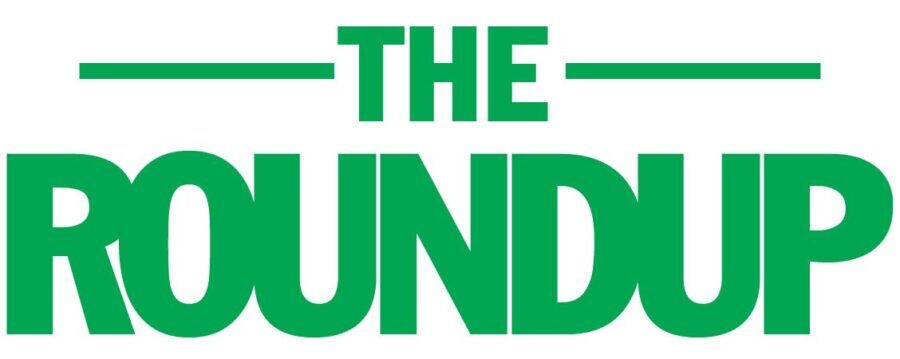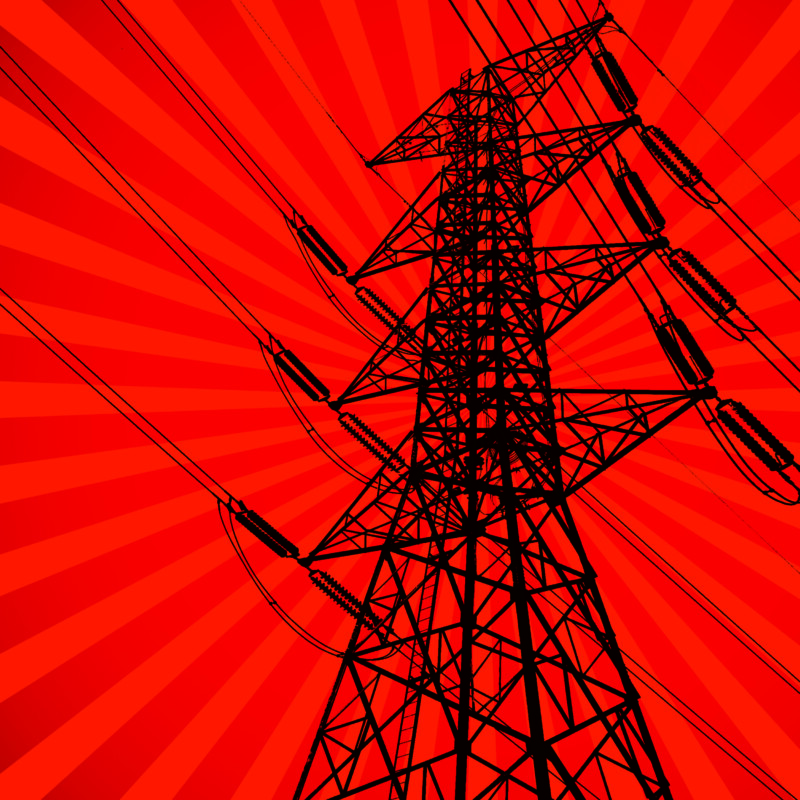Keeping the lights and heat on this winter — and what it will do to your wallet
The skyrocketing costs of energy in 2022 have left many New Hampshire families struggling to afford their heating and electric bills, and some even in fear of their homes going cold and dark this winter. Fortunately, there are a number of resources available to the state’s more vulnerable populations to ensure that doesn’t happen, as well as actions that residents of all demographics can take to reduce energy consumption — and the balance on their energy bills.
New Hampshire energy professionals shared their expertise on the current state of and onlook on energy costs; how to pay less for energy now and over time; and where to find the appropriate assistance to meet your family’s unique energy needs.
Why is energy so expensive now?
The biggest reason, according to New Hampshire energy professionals, is an increased demand for natural gas around the world, triggered by global events, particularly the war in Ukraine.
“Even though the U.S. is a major producer of natural gas, we’re in the same global market as everyone else on the planet,” New Hampshire’s Consumer Advocate Donald Kreis said. “When the demand for natural gas around the world goes up, our prices go up.”
New England’s power grid relies heavily on natural gas, so when the price of natural gas goes up, so does the price of the electricity produced with it.
“The regional market for electric supply consists of 50 percent or so, give or take, natural gas,” said William Hinkle, media relations manager for Eversource, New Hampshire’s largest utility, “so the prices [of electricity] are always very closely tied to the price of natural gas.”
In the winter, the demand for natural gas is even greater as many homes also use it for heating.
“The winter is tough, because a big portion of the natural gas supply gets diverted for use by millions of people using it to heat, but the power plants still need the same amount of natural gas to produce electricity,” said Seth Wheeler, communications coordinator for New Hampshire Electric Co-op, a member-owned and -controlled electric utility.
Will prices keep going up?
“Probably not,” said Kreis, who, as Consumer Advocate, represents the interests of residential utility customers in government proceedings. “I don’t expect it to go much higher than it is, but that still isn’t good news, because prices are double than what they were a year ago.”
Eversource recently filed its proposal for its next energy service rate adjustment, which will go into effect on Feb. 1, with the New Hampshire Public Utilities Commission. It’s a slight decrease, from 22.6 cents per kilowatt-hour, the rate set in August, to 20.2 cents per kilowatt-hour.
“The price is going down, but it’s still incredibly high, and still much higher than it was in February 2022,” Hinkle said.
“We enjoyed, for a good 10 years or so, what turned out to be really low prices for electricity and natural gas,” Kreis said, “but that era of 10-cents service rates is over, and I don’t see it coming back anytime soon.”
What are my options for heating my home? Which heating source is the most economical?
According to the U.S. Census Bureau’s 2015-2019 American Community Survey, fuel oil is the most common, with 44 percent of New Hampshire homes using it as a primary heating source. Natural gas is the second most common, used by 21 percent of homes, followed by propane gas, used by 16 percent. Electric heating is the primary heating source in nine percent of homes; seven percent use wood, and two percent use coal, solar or another heating source.
In the short term, the most economical option is to continue using your home’s existing heating infrastructure while taking measures to get the most bang for your buck.
“Replacing the heating system in your house with a different one is a substantial investment; that’s going to be expensive,” Kreis said. “The first best option is energy-efficiency and conservation — finding ways to use less energy and need less heat.”
But investing in a different heating system could pay off in the long term.
One of the most economical heating sources that New Hampshire energy professionals are advocating for is the heat pump. Powered by electricity, a heat pump sits outside the home, extracts and condenses heat from the air and blows that heat into the home through ducts. It can also be used during the summer to extract and condense cooling air.
“It’s three times as efficient as more traditional heating, which means you get a lot more heat for less money,” Wheeler said. “It’s going to increase your electric bill a bit, but it will still cost you less on heating overall.”
You can also save money by powering a heat pump or another electric heating system with renewable energy sources, such as solar and wind.
“Renewable energy has declined so dramatically in price,” said Sam Evans-Brown, executive director of Clean Energy NH, a nonprofit that advocates for clean energy initiatives in the state. “It’s a persistent myth that it’s expensive because, frankly, people are bad at math. Up front, it’s expensive, but over time, it’s the cheapest thing you can do.”
What can I do right now to reduce my energy usage at home?
“Unfortunately, we’re at a time when people need to be active users of energy,” Kreis said. “You can’t just flip a switch and forget about it anymore. By being mindful about how and when and why you’re using energy, you can save a substantial amount of money.”
Here are some energy-efficiency actions that New Hampshire energy professionals said require little effort but can have a big impact:
• Dress warmly and use warm bedding so that you can turn the heat down.
• Turn off lights in unoccupied rooms.
• Replace incandescent lighting with LED lighting.
• Turn the heat down when you’re not at home.
• Open window blinds during the day to absorb heat from the sunlight.
“It sounds glib, but that stuff has an important role to play,” Kreis said. “Energy is never going to be free, and it’s probably never going to be cheap, but anything you can do to bring down your electric bill is worth pursuing.”
Weatherization — making energy-friendly improvements to your home — can also go a long way toward reducing your energy bill. The most important improvement you can make, Evans-Brown said, is tightening up your home’s insulation, but that can be costly. If you aren’t ready to make that investment, there are some relatively inexpensive DIY improvements that you can make to your home right now to conserve as much heat as possible:
• Put weather stripping around doors
• Install a shrink-to-fit plastic window cover
• Use spray foam insulation to fill in cracks and gaps along the ceilings and walls
“These are quick and easy things that anybody can do to lower their energy bill this winter,” Evans-Brown said.
Can I get electricity at a cheaper price?
Possibly. Your electric bill pays for the electricity you use and for the delivery of that electricity to your home. The system of poles and wires through which your electricity is delivered is managed by an electric utility, and that utility is, with limited exceptions, chosen for you based on where you live. You do, however, have a choice of companies to purchase your electricity, or “supply,” from. These companies, known as “competitive energy suppliers,” can set their own prices and contract terms and offer sign-up incentives. If you don’t choose your own supplier, your utility is your default supplier, and you pay the “default energy service rate,” which is adjusted every six months to reflect market prices and demand.
“Customers should know that they have options,” Hinkle said. “They should definitely shop around to ensure that they’re paying the lowest possible supply rate.”
“Some of the prices that the competitive suppliers are offering right now are substantially lower than the utility’s price,” Evans-Brown said. “You can [switch to] a competitive supplier and cut your bill by like, 15 percent right this moment.”
What kind of assistance is available to me if I’m struggling to afford electricity and home heating?
In September, $35 million in state surplus funds was allocated to deliver an emergency energy relief package to New Hampshire households earning between 60 and 75 percent of the state’s median income. Qualifying households can receive a one-time benefit of up to $450 for home heating costs and up to $200 for their electric bill. Apply for emergency assistance through your local community action agency by April 30, 2023.
“The eligibility requirements are looser in terms of income, and people who don’t normally qualify for benefits may qualify [for emergency assistance],” Wheeler said. “Normally, you wouldn’t see this. This is a one-off thing that reflects the climate we’re in right now of an energy crisis.”
For New Hampshire households earning less than 60 percent of the state’s median income, there are three main ongoing energy assistance programs available, also through community action agencies:
• The Fuel Assistance Program provides qualifying households with benefits ranging from $304 to $3,024 to offset home heating costs.
• Electric Energy Assistance provides qualifying households a discount of eight to 76 percent on their utility bill.
• Weatherization Assistance provides qualifying households with home improvements for energy efficiency at no cost.
In applying for emergency assistance, many households find that they actually qualify for ongoing assistance programs.
“When people look at the numbers and self-assess, they think they aren’t going to qualify,” said Ryan Clouthier, chief operating officer at Southern New Hampshire Services, the Community Action Partnership for Rockingham and Hillsborough counties, “but there are many different [factors] that come into play, so it’s important that people talk to us and let us help them with the application process.”
Even if you don’t qualify for the state’s main ongoing assistance programs, it’s worth reaching out to your local community action agency as it may know of other kinds of energy assistance that aren’t public knowledge that you could qualify for.
“There are other programs that aren’t as large that may be able to help you with something,” Clouthier said. “If you get your application in with a community action agency, we can see if there’s anything else out there to connect you with.”
Utilities, for example, may also offer assistance programs for customers who are struggling to pay their bills.
“We encourage customers to reach out to us so that we can work with them one-on-one to find a solution that will help them in their individual case,” Hinkle said.
Eversource has a number of income-based assistance programs and payment plan options available and can guide customers in identifying energy-efficiency solutions to reduce their bill:
• The New Start program helps customers with an overdue balance by creating a new budgeted monthly payment for them based on the average amount of their regular monthly bill. If they are diligent in paying their new monthly payment, Eversource will forgive a portion of the overdue balance each month.
• Payment plans can be established for customers who have an overdue balance but don’t qualify for forgiveness. If they make an agreed-upon minimum payment, they can pay off their remaining balance over the course of up to 12 months.
• Budget billing is an arrangement that allows customers to make fixed monthly payments for 12 months based on the past annual energy usage for customers in their location. If, at 12 months, the customer’s usage has totaled more than what they’ve paid for, they can “settle up” their remaining balance. If their usage has totaled less than what they’ve paid for, they will receive a reimbursement credited to their next bill.
• Neighbor Helping Neighbor is a partnering nonprofit that provides grants to utility customers who don’t qualify for income-based assistance but are experiencing an emergency or isolated financial hardship that has made it difficult for them to pay their bills.
“A lot of people, when they fall into arrears with their bills, see their utility company as this big bad enemy and try to avoid them,” Kreis said. “You should be doing the opposite; lean into talking with your utility. They have all sorts of resources that can help you.”
New Hampshire energy resources
New Hampshire utilities
- Eversource (electric): 800-592-2000, eversource.com
- Liberty (electric and natural gas): 800-833-4200, libertyutilities.com
- New Hampshire Electric Co-op (electric): 800-698-2007, nhec.com
- Unitil (electric and natural gas): 888-301-7700, unitil.com
To see a list of New Hampshire competitive energy suppliers and compare their rates and plans, visit energy.nh.gov/consumers/choosing-energy-supplier.
Community Action Agencies
Local resources for energy assistance programs.
- Southern New Hampshire Services (Hillsborough and Rockingham counties): 668-8010, snhs.org
- Community Action Program Belknap-Merrimack Counties: 223-0043, capbm.org
- Community Action Partnership of Strafford County: 435-2500, straffordcap.org
- Southwestern Community Services (Cheshire and Sullivan counties): 352-7512, scshelps.org
- Tri-County Community Action (Coos, Carroll and Grafton counties): 752-7001, tccap.org
See “Federal Energy Resources for Individuals and Homeowners,” a document released by U.S. Sen. Jeanne Shaheen outlining the energy cost-saving benefits of the federal Inflation Reduction Act passed in August and New Hampshire energy assistance programs at shaheen.senate.gov.
New Hampshire Office of the Consumer Advocate (oca.nh.gov) represents the interests of residential utility customers in government proceedings.
NHSaves (nhsaves.com) is a collaboration of New Hampshire utilities that acts as a resource for energy-efficiency, providing residents with information, incentives and support.
New Hampshire fuel prices are updated regularly at energy.nh.gov/energy-information/nh-fuel-prices.
For more information on all things pertaining to energy in New Hampshire, visit the state’s Department of Energy website, energy.nh.gov, or Public Utilities Commission website, puc.nh.gov.
Maybe solar?
If there’s one good thing to come out of this winter’s high energy costs, Evans-Brown said, it’s that they’ve led many people to reevaluate their energy sources and take an interest in renewable energy sources, particularly solar.
“It’s waking people up and pushing more people in that direction [of clean energy],” he said.
The upfront cost of solar installation is not cheap, but there are a number of programs in New Hampshire that offer rebates and other incentives for qualifying residents who install clean energy generation systems on their homes.
One of those programs is the New Hampshire Department of Energy’s Low-Moderate Income Solar Grant Program, which awards grants to fund solar projects for low- to moderate-income multi-family housing communities. Project proposals and applications are being accepted now through Jan. 24, 2023, with grant amounts ranging from $75,000 to $175,000.
“Inflation and rising energy prices hit our low-income families hardest, and this bill will help ensure that these New Hampshire families and communities can share in the benefits of clean energy,” Gov. Sununu said in a statement after signing the bill for the program in July.
New Hampshire utilities have also joined the push toward transitioning residents to renewable energy sources.
“It’s an important priority for the company,” Hinkle said in regard to Eversource. “Ensuring that we’re able to maximize the benefits of [clean energy] programs for all customers, particularly low- and moderate-income customers, is something we work on every day.”
The number of people installing solar energy systems on their homes and businesses is around four times higher this year than it was last year, Evans-Brown said.
“If you call up a solar contractor today, they wouldn’t be able to get to your house until like, next August,” he said. “They’ve got people beating down their doors.”
But switching to solar is not a decision to be made in haste; people who are considering making the switch would be wise to use the waiting period for service as an opportunity to thoroughly research solar energy and connect with local resources like Clean Energy NH that provide support and guidance to clean energy users.
“That’s your next step,” Evans-Brown said.
Resources
Clean Energy NH (cleanenergynh.org) is a nonprofit that advocates for clean energy initiatives in the state.
Learn more about the New Hampshire Department of Energy’s renewable energy programs and initiatives at energy.nh.gov/renewable-energy.
New Hampshire Energy Highlights
June – In response to a nationwide increase in energy costs, Gov. Chris Sununu and the New Hampshire Department of Energy sign off on a $7.5 million emergency energy relief package. For the first time ever, low-income households qualifying for assistance through the Fuel Assistance Program receive summertime assistance to offset the costs of cooling their homes. Additionally, $7 million in state surplus funds is allocated to the Electric Assistance Program, which provides low-income households with assistance on their electric bills.
July – Gov. Chris Sununu signs SB270, a law under which New Hampshire’s Department of Energy will work with the state’s utility companies to enroll low- to moderate-income families in a community solar energy program. Families enrolled in the program receive a credit on their electricity bill.
August – Eversource, New Hampshire’s largest electric utility, notifies customers of an “unprecedented increase” in the supply portion of their bill due to record-high natural gas prices and energy supply pressures from the global economy. The energy provider’s energy service rate, which is adjusted twice a year in August and February, increases from 10.669 cents per kilowatt hour to 22.566 cents per kilowatt hour.
September – HB2023 is passed, allowing $35 million in state surplus funds to be put toward a one-time emergency fuel assistance program and supplemental electric benefit for households earning between 60 and 75 percent of the state’s median income. “New Hampshire just delivered the largest energy relief package this state has ever seen, helping families in need this winter,” Gov. Chris Sununu says in a press release. An additional $7 million is allocated to support existing assistance programs for low-income households.
October – U.S. Senator Jeanne Shaheen leads a roundtable discussion with New Hampshire energy professionals to highlight state and federal programs available to assist New Hampshire households with heating costs. “There are numerous programs and opportunities available to help Granite Staters, but those are only effective if folks know about them,” Sen. Shaheen says in a press release. Sen. Shaheen releases “Federal Energy Resources for Individuals and Homeowners,” a document outlining the energy cost-saving benefits of the federal Inflation Reduction Act passed in August and state energy assistance programs.
November – The Low Income Home Energy Assistance program (LIHEAP), which funds New Hampshire’s Fuel Assistance Program, receives $33.9 million in federal funding to help low-income households pay their home heating and energy bills, make minor energy-related home repairs and weatherize their homes to make them more energy-efficient.
December – Eversource files its proposed energy service rate for Feb. 1 with the New Hampshire Public Utilities Commission. If approved, the rate will decrease from 22.6 cents per kilowatt-hour to 20.2 cents per kilowatt-hour, lowering the supply portion of the average residential customer’s bill by approximately seven percent.
Featured photo: Courtesy photo.







